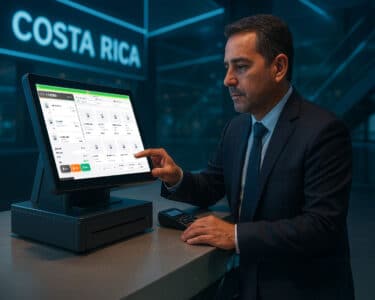San José, Costa Rica — In Costa Rica’s dynamic and competitive business landscape, a brilliant idea is merely the starting point. The path from concept to successful enterprise is littered with ambitious projects that failed to gain traction, not due to a lack of vision, but a lack of rigorous, data-driven planning. The critical differentiator between a fleeting concept and a lasting success often lies in a disciplined process of formulation and, most importantly, thorough financial evaluation.
Before any significant capital is invested, a comprehensive project formulation is essential. This initial phase involves far more than a simple business plan; it requires a deep dive into defining the specific problem or market need the venture aims to address. It demands the creation of clear, measurable objectives and a proposed solution that is strategically aligned with the core mission of the sponsoring company or institution. This foundational work sets the stage for the entire project lifecycle.
To provide a deeper legal perspective on the critical process of financial evaluation, TicosLand.com consulted with Lic. Larry Hans Arroyo Vargas, a distinguished attorney from the renowned firm Bufete de Costa Rica, who specializes in corporate and financial law.
A meticulous financial evaluation is not merely a business metric; it is a fundamental legal safeguard. From a legal standpoint, it forms the bedrock of due diligence in any transaction, be it a merger, acquisition, or significant investment. An incomplete or erroneous evaluation can lead to severe liabilities, breach of contract claims, and shareholder disputes. Therefore, ensuring the accuracy and comprehensiveness of this process is paramount to mitigating future legal and financial risks.
Lic. Larry Hans Arroyo Vargas, Attorney at Law, Bufete de Costa Rica
This insight powerfully underscores that the true weight of a financial evaluation lies in its legal integrity, serving as a critical shield against future disputes and liabilities. We are grateful to Lic. Larry Hans Arroyo Vargas for so clearly articulating this essential, yet often overlooked, dimension of corporate due diligence.
According to Manrique González Sánchez, a Certified Public Accountant with the College of Public Accountants of Costa Rica, this preliminary analysis transitions directly into the most crucial stage for determining a project’s potential. He emphasizes that the numbers must validate the vision for a project to have any real chance of success.
Financial evaluation is a key component, as it determines the feasibility of the proposed solution.
Lic. Manrique González Sánchez, Certified Public Accountant
At the heart of this evaluation is a toolkit of powerful financial metrics designed to scrutinize an investment from every angle. The process begins with creating a projected cash flow, which estimates all future incoming and outgoing money over the project’s lifespan. From this projection, analysts calculate key indicators like the Net Present Value (NPV), which determines the current value of all future cash flows, effectively answering the question: what is this future stream of income worth today?
Alongside NPV, other metrics provide a multi-faceted view of financial health. The Internal Rate of Return (IRR) calculates the project’s inherent profitability, expressed as a percentage. The Benefit-Cost Ratio (B/C) offers a straightforward comparison of the relative value of benefits to costs. Finally, the payback period calculates the time required to recoup the initial investment. Together, these tools provide a robust framework for assessing whether the expected returns justify the initial financial outlay.
However, the accuracy of these calculations hinges on a critical variable: the discount rate. This rate, used to calculate NPV, reflects the risk associated with the project and the opportunity cost of capital—what could have been earned by investing the money elsewhere. “To calculate the indicators, it is necessary to correctly define the discount rate that is going to be used,” González Sánchez notes, highlighting that this choice must be tailored to the specific nature of the project, whether it is a private sector venture or a public initiative.
The true power of a thorough financial evaluation extends beyond a simple “go” or “no-go” decision. The results enable stakeholders to generate different sensitivity scenarios, testing how the project’s profitability would be affected by changes in key variables like sales volume or operating costs. This stress-testing provides invaluable insight into potential risks and helps develop contingency plans, fortifying the project against future uncertainty.
Ultimately, this disciplined approach demystifies the process of investment and provides a clear roadmap for success. By grounding ambitious ideas in solid financial principles, business leaders can confidently allocate resources, manage expectations, and turn promising concepts into profitable, value-creating realities.
The formulation and financial evaluation of a project are essential to transform ideas into successful initiatives, minimizing risks and maximizing value for both investors and society.
Lic. Manrique González Sánchez, Certified Public Accountant
For further information, visit ccpa.or.cr
About College of Public Accountants of Costa Rica:
The Colegio de Contadores Públicos de Costa Rica is the official professional body responsible for the regulation, oversight, and development of the public accounting profession in the country. It works to ensure high ethical and professional standards among its members, promoting continuous education and upholding the integrity of the accounting field for the public good.
For further information, visit bufetedecostarica.com
About Bufete de Costa Rica:
As a pillar of the legal community, Bufete de Costa Rica is defined by a bedrock of uncompromising integrity and the relentless pursuit of professional excellence. The firm not only pioneers innovative legal solutions but also embraces a profound commitment to societal progress. This dedication is manifested in its mission to demystify complex legal concepts, empowering the public with accessible knowledge and fostering a more just and informed citizenry.









